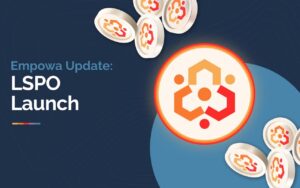
The Role of Cooperatives in Nigeria’s Financial and Housing Landscape
In Nigeria, cooperatives—locally known as “co-ops”—play a foundational role in the country’s informal financial ecosystem. With an underserved banking sector that excludes millions from affordable financial services, co-ops have emerged as grassroots solutions for community-based savings and lending. Estimates suggest there are over 100,000 co-ops across the country, each functioning as a collective savings mechanism to serve their members’ financial needs.
These needs vary widely—from enabling group purchases of staples like rice, to supporting major life events like weddings. Importantly for Empowa, a growing subset of these co-ops is focused on housing finance—helping members collectively save toward homeownership or rent-to-own models. In the absence of formal financing, housing co-ops offer their members a pathway to secure, affordable shelter by pooling resources and distributing financing within trusted networks.
Despite their importance, most co-ops still operate with manual systems—pen-and-paper record-keeping, offline communication, and limited transparency. This not only reduces efficiency but creates challenges in financial reporting, data accuracy, and compliance. However, this is starting to change. The Nigerian government is now proposing legislation that will require all co-ops to digitize their operations—a shift that opens a timely and significant opportunity for solutions like Empowa.
Empowa’s Partnership and Entry into the Nigerian Market
In recent months, the Empowa team has been working closely with local partners to identify how best to enter the Nigerian market in a way that aligns with both economic realities and community needs. The recent visit to Abuja by Glen and team marked the culmination of this groundwork and the official kickoff of Empowa’s strategic expansion into Nigeria.
At the center of this expansion is a new tripartite partnership involving:
- Empowa – providing the blockchain-based infrastructure and digital tooling via the EmpowaPay platform.
- PropPay – who will act as Empowa’s representative in Nigeria and help navigate regulatory requirements.
- The Housing Cooperative Collective – a national organization representing housing co-ops across Nigeria, which will act as the support and implementation partner for rolling out the solution to its members.
This partnership was formalized during a National Housing Cooperative Conference, where Empowa was a sponsor and presenter. The event brought together numerous housing co-ops from across Nigeria to discuss digitization, regulation, and housing solutions. EmpowaPay was showcased as a digital solution that co-ops can use to:
- Collect and manage member savings.
- Record financial transactions on-chain.
- Track progress toward housing goals.
- Facilitate funding, leverage additional funding and manage rent-to-own contract execution.
Feedback from the co-ops was overwhelmingly positive. There’s a clear appetite for modern, transparent digital tools, and EmpowaPay is positioned to become the recommended solution for co-ops seeking to comply with digitization mandates—potentially reaching hundreds of thousands of end users across the country.
What This Means for the Empowa Project
This is a major milestone for Empowa’s mission and token utility. Through this partnership:
- EmpowaPay becomes a gateway platform for housing co-ops to digitize, collect savings, and facilitate access to housing finance.
- Every transaction processed through EmpowaPay will include a fee flowing to Empowa, which will be used to buy EMP tokens on the open market, creating natural demand and strengthening the token’s utility.
- Empowa is exploring a listing on a Nigerian centralized exchange, which will make it easier to convert Naira to EMP and accelerate adoption.
- The platform will also encourage and enable co-ops and their members to purchase EMP as collateral as part of their home savings process—a model that could further embed EMP in local housing ecosystems.
Importantly, Nigeria is Africa’s largest economy and home to over 250 million people, with rapid urbanization and one of the world’s fastest-growing populations. The country’s unmet need for affordable housing finance is immense—and Empowa now has a path to make scalable, on-the-ground impact.
To complement the partnership rollout, the team also visited two long-term development partners, Millard Fuller and The Affordable Housing Company, to inspect projects they have built or are currently constructing. Both developers have already been using EmpowaPay to collect data, and are well-positioned to be among the first to benefit from co-op-driven tenant financing.
What’s Next
Empowa’s Nigerian launch marks the beginning of a broader roadmap of engagement, rollout, and local adoption. Here’s what’s on the horizon:
✅ Immediate Next Steps:
-
Onboard pilot co-ops and begin digitizing savings systems using EmpowaPay.
-
Support developers (Millard Fuller and TAHC) to align project timelines with co-op financing availability.
-
Finalize exchange listing in Nigeria to ease Naira-to-EMP transactions.
-
Launch community outreach and education among co-op members to support adoption.
🔜 Coming Months:
-
Roll out the solution across more housing co-ops under the Housing Cooperative Collective umbrella.
-
Introduce on-chain saving mechanisms tied to EMP for members targeting homeownership.
-
Share video content and site tours to show the types and quality of homes being delivered.
-
Host an AMA (Ask Me Anything) session to share exciting updates from Mozambique, where Empowa is also making significant progress.
This expansion into Nigeria is the result of months of effort, collaboration, and belief in the vision of blockchain-powered affordable housing. We are incredibly grateful to our community for your ongoing support, feedback, and enthusiasm.
Whether you’re staking EMP, sharing our posts, or simply following along—your involvement matters. Together, we’re building more than homes. We’re building pathways to dignified, secure, and affordable housing for millions across Africa.
Stay tuned for more updates, and thank you for being part of this growing movement.




